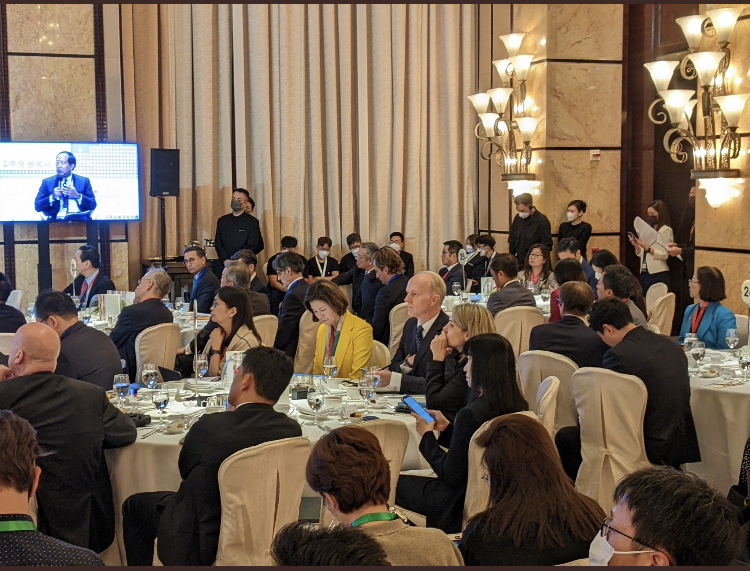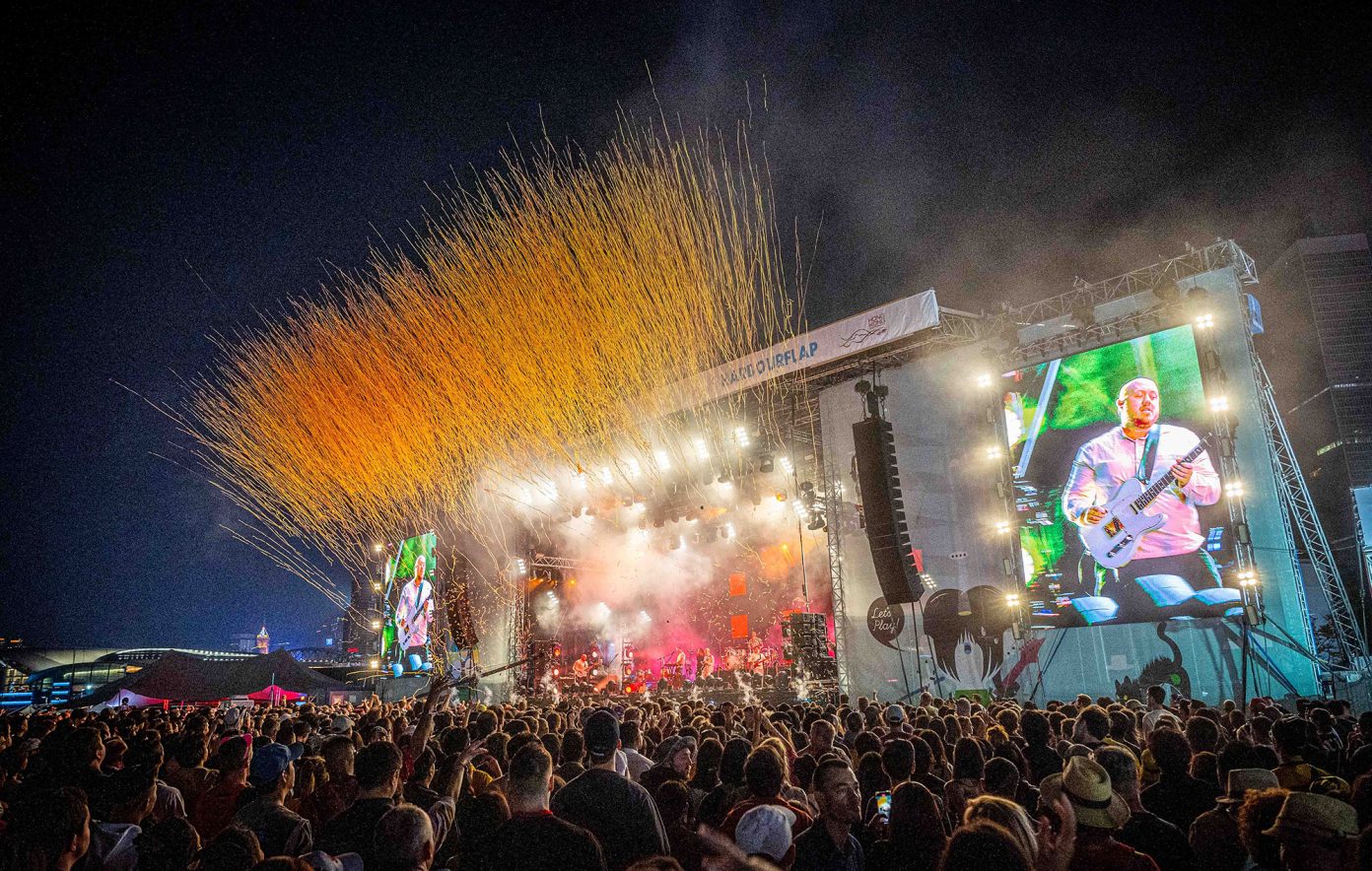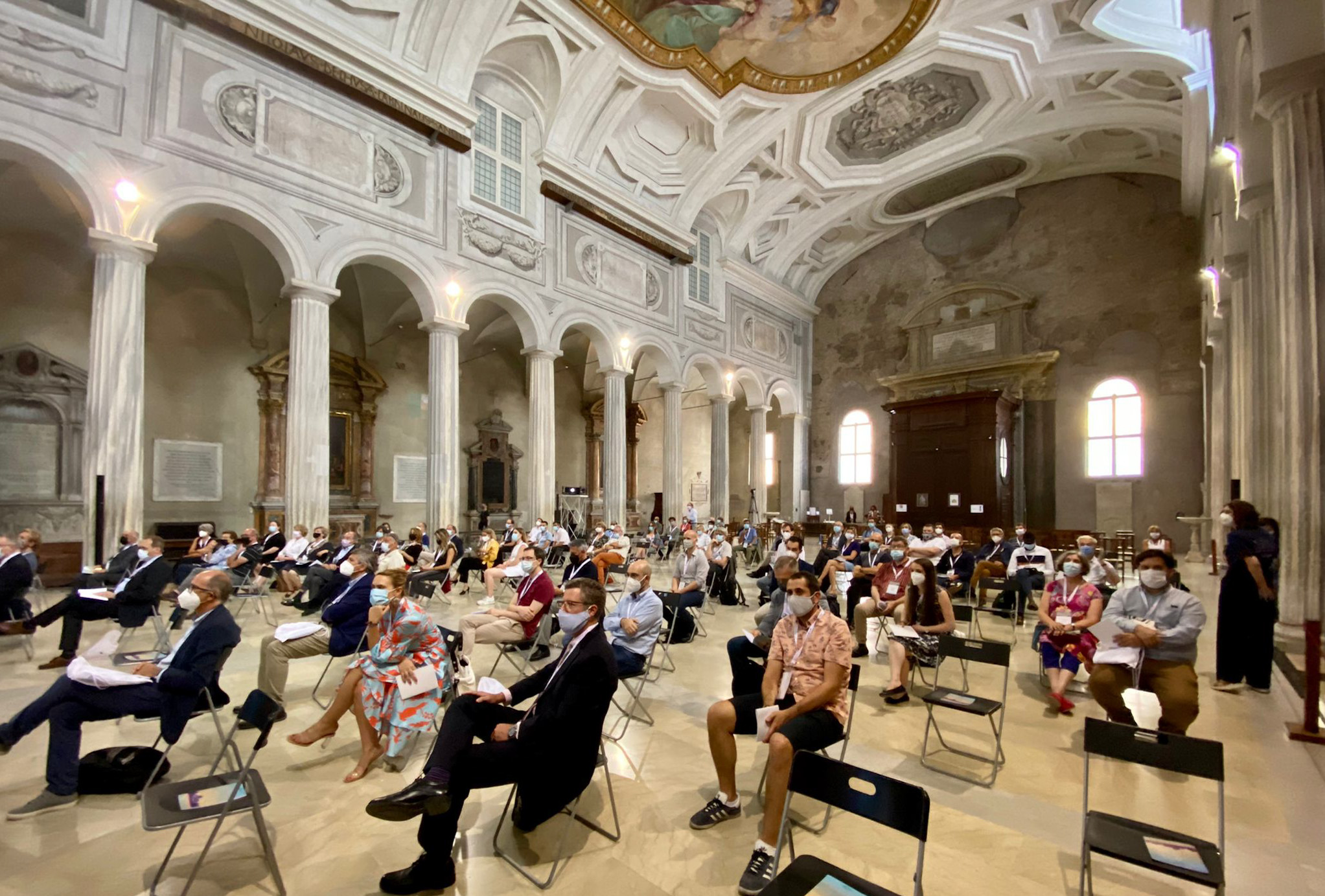 Childhood summers grilling freshly caught fish by the seaside; newly cut grass in the garden; mother’s home baking; smoke from grandfather’s pipe; a lover’s perfume… all of these personal memories are difficult to explain to others, but the merest hint of their scent and we find ourselves immediately transported to a different time and place.
Childhood summers grilling freshly caught fish by the seaside; newly cut grass in the garden; mother’s home baking; smoke from grandfather’s pipe; a lover’s perfume… all of these personal memories are difficult to explain to others, but the merest hint of their scent and we find ourselves immediately transported to a different time and place.
In Hollywood a few years ago, Warner Bros Studios organised The Last Samurai Premiere Party in Los Angeles. The star of the film, Tom Cruise, and his then paramour Penelope Cruz wandered through the courtyard smelling the sweet scent of cherry blossom associated with Japan’s famous sakura festival. The aroma was provided by specialist company Scentevents (www.scentevents.com). Over 1,200 other guests enjoyed this quintessentially Japanese fragrance as it wafted over the entire party, combining with themed lighting and cherry blossom garden décor to emotive effect.
Why does our sense of smell have such an impact on us? The reason appears to be that the nose’s smell sensors, olfactory receptors to be precise, are connected to the same part of the brain – the limbic system – that handles our emotions. The neural messages reach here first, before going to the cortex, the intellectual part of our brain. This may be why we have such strong emotional responses to smells and find it more difficult to articulate, describe or think about them logically.
The right reaction
As any good event organiser knows, unleashing emotional responses is the alpha and omega of event experiences – an involuntary memory that stays embedded in the mind is worth a hundred repetitive marketing taglines.
Neal Harris of Los Angeles-based Scentevents, says: “Scentevents specialises in scenting events of all sizes, indoor or outdoor, large or small. In particular, we focus on events, meetings and scent marketing programmes. Typically, Scentevents provides short-term Scentematography services – for moments, minutes, days or weeks. We have many products available for spaces large or small, indoor or outdoor. Our choice of scents is limited only by our client’s imagination. We have various options to meet specific budget, marketing and preference and design needs.
“We work with many of the top event producers throughout the world and have a great affiliation with Brandaroma which is headquartered in Hong Kong. Brandaroma has global operations in Asia, Australia, Europe and the US. Our global network of ‘noses’ enables us to truly understand the unique scent needs and preferences of clients and their guests throughout the world.”
We are surrounded by thousands of smells every day and we learn to ignore almost all of them as distractions. Only the most powerful, whether from the durian hawker stall or the flower market, quickly snap us out of this olfactory apathy. As mammals go, humans are pretty unimpressive compared even with domestic pets in our ability to pick up scent. Nonetheless, our sense of smell leaves a powerful imprint on our memory.
Health and holiness
Kate Crofton-Atkins is a fragrance specialist who has lived in Vietnam. Through her company, Cochine, she has developed a range of scents to evoke the smells of the Southeast Asian nation. “Cochine fragrances have been inspired by a scene or moment from the time I spent living in Vietnam, and as such are designed to conjure up a particular feeling. Our latest fragrance, for example, is inspired by the weekends I spent away from the bustle of Saigon on the beaches north of Saigon. The exotic fragrance combines the smooth, honeyed tones of frangipani with the delicate freshness of neroli [bitter orange] to transport you to soft white sands. It captures the sun-warmed ‘embrace’ and sense of escape that weekends away at the beach offered me. Frangipani and neroli oils are valued in Vietnam for their healing and soothing properties.”
Crofton-Atkins’ fragrances can also be used in venues. “Another of our fragrances, the rich and sultry Vanille & Tabac Noir, is a blend of two of the Orient’s most evocative aromas, with the intention to encapsulate the magical allure of Saigon at sunset – that moment of contented reflection at dusk just before the evening unfolds. As testament to the fragrance’s night-time allure, it is used in the chic and sophisticated Kee Club both in Hong Kong and Shanghai.”
As in so many other areas, the Japanese have taken the everyday sense of smell and turned it into a special cultural philosophy known as “kodo”, which means “the way of the fragrance” (see box). It was considered one of the three major classical arts that were essential for refined women, the other two being sado (the tea ceremony) or kado (flower arrangement). The Japanese began using fragrant wood for religious ceremonies back in the 8th century, but kodo was established later, in the 15th century when various forms of artificial incense were well established.
Smoke and scent was considered to be purifying and was therefore strongly linked to religion. The term “joss stick” takes its name from the Portuguese word “Deus” or God. The Portuguese were the first European visitors to visit Japan and were struck by the similarities in the use of incense in Buddhist and Christian traditions.
The soothing and healing qualities of perfumes and their ability to unleash what some might consider the inner spiritual side of human beings is therefore well established and is carried through today in a more secular manner with the cleansing and purification rituals of modern spa treatments.
The spa sector has grown enormously in recent years both in hotels and as standalone outlets. Event organisers routinely include spa options in both incentive programmes and as optional elements in meeting and conference programmes. Since the sense of smell is not simply physiological but also emotionally linked, this has cultural implications that event organisers should be sensitive to.
Conscious of culture
As in any other area of event planning, cultural sensitivity is a must. Harris says: “Be knowledgeable of particular scents that are positive or not positive for guests from different cultures. Scents should flow in sync with the overall message being delivered and be positive or neutral to the guests.
“Recently, we provided a Chinese New Year themed scent experience – our client incorporated a floral scent with subtle notes of tea to complement the music, décor and ambience of the experience. The space was designed around a flower garden with various Asian décor items including simulated incense sticks (no actual flame) and subtle hints of incense scent.”
Timing is important too, Harris believes, to let the scent work its magic. “In general a scent should enhance the overall event, somewhat like background music. Be careful introducing scents with a meal service – avoid competition with food, rather complement or allow the food to be the aroma source.”
Hotels have been very active in developing ambient aromas. In 2006, Starwood Hotels began to experiment with distinctive scents for its multiple brands: Sheraton had fig, clove and jasmine, Westin lobbies were given a white tea fragrance, while Four Points had a dash of ginger.
Air Aroma (www.air-aroma.com), a US-based scent company, offers solutions for small hotel lobby areas and, through air-conditioning ventilation, scenting for larger common areas. One product, Arologic, allows the hotel front desk to use wireless technology to control a network of scent diffusers in multiple scent zones remotely.
Using our underutilised sense of smell can clearly be a powerful technique in developing memorable and remarkable event experiences, and new technology is transforming the way this can be delivered. So, if you’re looking for an event that will stimulate the senses, just follow your nose.
KODO: THE WAY OF FRAGRANCE
According to Japanese philosophy, the fragrances of kodo are divided into rikkoku gomi, which means “six countries, five tastes”. The rikkoku are six kinds of fragrant wood: kyara (from Vietnam), rakoku (Thailand), manaka (Malacca, Malaysia), manaban (Malibar India), sumatora (Sumatra, Indonesia) and sasora (thought to be India). The gomi are the tastes of amai (sweet), nigai (bitter), karai (spicy hot), suppai (sour) and shio karai (salty). The ability to distinguish these elements from a single fragrance took years of study and a very refined sense of smell.

The perfection of kodo is said to have 10 physical and psychological virtues. It:
- Sharpens the senses
- Purifies the mind and body
- Removes mental or spiritual “pollutants”
- Promotes alertness
- Heals feelings of loneliness
- Creates a feeling of harmony even under stress
- Even in abundance, is not overwhelming
- Satisfies, even in small quantities
- Does not decay even over centuries
- Does no harm even if used every day
AROMATIC IDEAS
 Redolent room drops
Redolent room drops
Imaginative room drops are a fun and cost-effective way of reinforcing an event theme and acknowledging the special status of the delegate. Bottles of premium perfume or aftershave will always be welcome, but why not approach a local manufacturer and have one specially bottled or labelled for the event?
Say it with flowers
Whether it’s a traditional Thai welcome with “Phuang Malai” flower garlands at the airport, a room or table decoration, or a thank-you bouquet for your VIP speaker, flowers are universally recognised as thoughtful and beautiful additions to any event. Do get advice from a local florist though, as many cultures have superstitions about particular flowers, especially white ones, which can be associated with death.
Match the mood
Particular fragrances can have drastically different effects on mood, so make sure scents fit with the objective of the programme. Zesty peppermint and citrus fragrances for example will keep people awake and alert, ideal for those long sessions, while vanilla essence is widely recognised for its calming, soothing qualities – ideal when you want to drop the pace a gear.
FRAGRANT FACTS
- The average human nose can detect 10,000 different odours
- Humans have 5-6 million olfactory receptors, rabbits 100 million and dogs 220 million
- Our sense of smell develops from birth to around eight years old, but begins to decline in middle age
- Women consistently outperform men in distinguishing smells
- In parts of India, a traditional affectionate greeting is to smell someone’s head. An ancient Indian text reads: “I will smell thee on the head, that is the greatest sign of tender love”.
- The Ongee tribe of the Andaman Islands have a calendar based on the scents of flowers which bloom at different times of the year.
- Among the Dogon people of Mali in West Africa, fried onion perfume is considered highly attractive.
Source: The Smell Report, Social Issues Research Centre
INSIDER HIGHLIGHTS
Five scent destinations
 Perfume River, Hué, Vietnam
Perfume River, Hué, Vietnam
Located on the banks of the Perfume River, Hué is the former imperial capital of Vietnam. The river takes its name from days when the many orchards upriver used to shed their leaves and flowers in autumn, giving the waters a perfumed infusion. You can arrange dinner cruises on the Perfume River or themed imperial banquets in Hué’s Citadel, suitably dressed in period costume.
Contact: info@itsvietnam.com, www.itsvietnam.com
Tower of Buddhist Incense, Summer Palace, Beijing, China
At the centre of Beijing’s Summer Palace, on top of Longevity Hill and looming over Kunming Lake, is the Tower of Buddhist Incense. Built for religious rituals, it takes its name from the royal worshippers’ use of incense sticks. The Summer Palace complex today is a must-see highlight for any corporate group visiting the Chinese capital.
Contact: info@professional.com.cn, www.professional.com.cn
MesaStila coffee plantation, Java, Indonesia
Formerly the Losari Spa Retreat & Coffee Plantation, MesaStila in Magelang, near Yogyakarta in central Java, is set within a 22-hectare working coffee plantation, and is surrounded by volcanic peaks, forests and terraced fields. The resort has 26 villas and its Hammam Spa brings a Turkish twist to Javanese massage treatments. Coffee scrubs and wraps use coffee beans from the plantation, ground and blended with coconut milk, yoghurt and cinnamon. MesaStila is ideal for a high-end wellness incentive or corporate retreat.
Contact: reservations@losaricoffeeplantation.com, www.losaricoffeeplantation.com
“Fragrant Harbour” – Hong Kong
Hong Kong means “Fragrant Harbour” in Cantonese. The name is incongruous today, given the city’s notorious air quality, but there are few places on Earth that stimulate the senses in the same way. The Cantonese are food obsessed – whether it’s the aroma of dried fish in the street markets, the unmistakeable waft of stinky tofu, steamed dim sum or stir-fried dishes from dai pai dongs, you can’t escape the smell of the kitchen. Another Hong Kong treat is a visit to a traditional Chinese medicine shop, where drawers hold all kinds of herbal and animal extracts that are dispensed to treat ailments. The fundamental doctrine of traditional Chinese medicine states that smelling is one of the four methods of examining a patient.
Contact: dmc@dmc.com, www.dmc.com.hk
Refreshing rainforest, Brunei
In today’s world it can be hard to escape the manufactured smells of industrial or traffic pollution. Artificial aromas are everywhere. Getting back to nature in Brunei is literally a breath of fresh air. More than 70 per cent of the country’s landmass is covered by pristine rainforest. Groups can take longboat rides up jungle rivers seeing wildlife along the way, take rainforest canopy walks for awe-inspiring views, and fill their lungs with some of the purest air on the planet.
Contact: info@bruneitourism.travel, www.bruneitourism.travel


